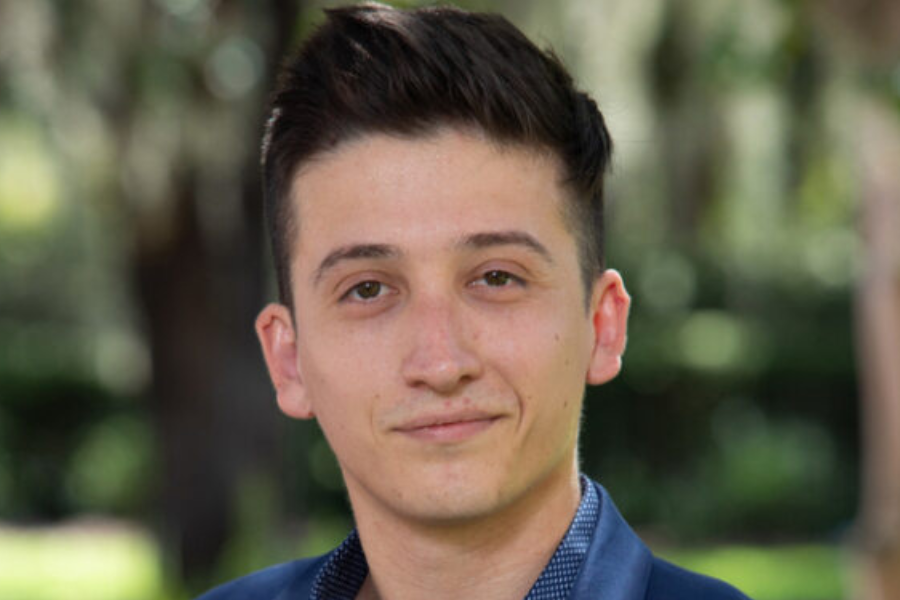Clemente Guzman

"Demand is high for strong minds."
College: Arts and Sciences
Degree Program: Condensed Matter (Physics)
Degree: Doctoral
Award: McKnight Dissertation Fellowship (2023)
Why FSU?
I was an American Physical Society Bridge Program Fellow, and I chose to study in FSU's Department of Physics due to the appeal of the National High Magnetic Field Laboratory. I wanted to gain the experience of working at a national facility, and I also felt that my background in inorganic chemistry would be of great use in condensed matter research. It’s also pretty cool knowing that Paul Dirac and John Schrieffer taught physics in many of the same spaces as I have in graduate school.
Motivation to pursue a graduate degree
As much as I enjoy the research I do for my Ph.D., the largest factor that pushed me into graduate school was the teaching aspect. I’ve thoroughly enjoyed the seven semesters I’ve taught as a teaching assistant. I cross my fingers every time I ask my PI who is getting a TA assignment for the next semester. I haven’t been able to pin down exactly why teaching is so satisfying for me; I’m a social person and like hearing about how my students’ other classes are going as well as their other interests. If I had to guess, I believe the reason behind this teaching bug is tied to my own progress in learning the material. I’ve had to try many different methods and explanations to understand the material myself, and the feeling I get from finally reaching an understanding is one that I want others to feel.
Importance and/or impact of research and work
My research focuses on the sensitive detection and coherent control of quantum spin states. The ability to arbitrarily control and read out the state of a quantum system has direct applications to the field of quantum computing. The spin systems we study could be used to construct a qubit, the fundamental building block of a quantum computer. Spin systems can also preserve a quantum state longer than other qubit systems, making them ideal for quantum memory and data storage. In addition to quantum computing, our devices could probe novel quantum materials and help gain an understanding of the dynamics of these unique systems.
Career aspirations
After graduate school, my ideal career would be as a lead research scientist at an established quantum computing company. I want to be on the front lines of engineering potentially fault-tolerant qubit systems as well as researching novel quantum algorithms and applications. I’d also like to be a part-time lecturer in physics at a small, four-year university to help train and inspire the next generation of scientists. Lastly, I’d like to help design and teach courses in the field of quantum computing since there are few to none that are offered at most universities, and the expanding field is demanding more people trained in the subject.
Advice for anyone considering graduate school
Learning in graduate school is radically different than learning in undergraduate, the reason being you are now having to apply what you’re learning to the research you decide to do. There are no longer elegant, concise solutions to problems, and many issues turn out to be a combination of different aspects. What most courses teach, including at the graduate level, is the material, but what you must learn is intuition. If you can successfully gain an intuitive understanding of your field and its problems, graduate school will not seem as daunting anymore.
Accomplishments during graduate career
I am proud to have received the McKnight Dissertation Fellowship (2023)
